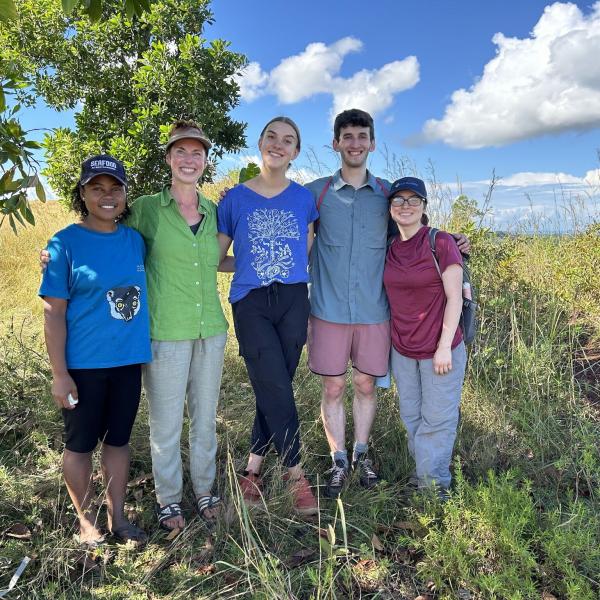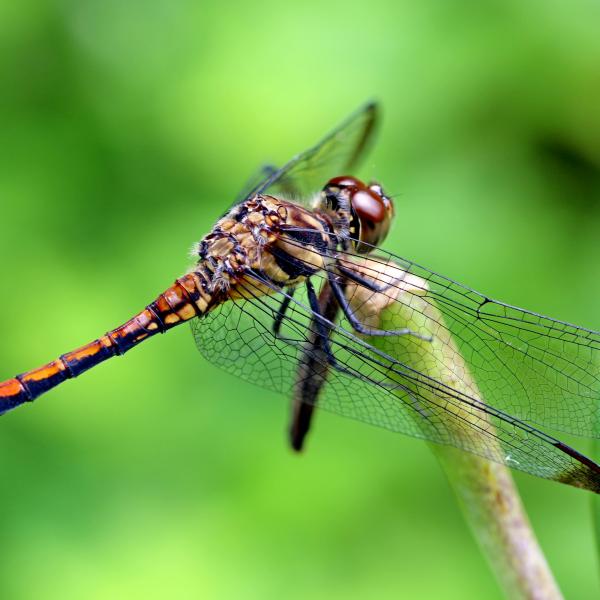This month, researchers in Arts & Sciences received awards from the National Institutes of Health, NASA, and the National Science Foundation.
Shankar Mukherji, assistant professor of physics, was awarded a five-year, $1.97 million grant from the National Institutes of Health for his project, “The design principles of the eukaryotic cell: uncovering the coordination of systems-level organelle dynamics, metabolism, and growth.” Read more from the Source.
Kenneth F. Kelton, the Arthur Holly Compton Professor of Physics in Arts & Sciences, won a five-year, $1.46 million grant from NASA for work on understanding the fundamental process of nucleation. In collaboration with members of the European Space Agency, Kelton’s study will make use of the unique microgravity environment available on the International Space Station (ISS) as well as a technique known as electromagnetic levitation (EML) to study homogeneous nucleation in liquids without using a container. Read more from the Ampersand.
James H. Buckley, professor of physics, received a $700,292 award from the National Science Foundation to upgrade VERITAS (Very Energetic Radiation Imaging Telescope Array System) for optical monitoring of astronomical transients. VERITAS is a ground-based telescope array for gamma-ray astronomy.
Meredith Jackrel, assistant professor of chemistry in Arts & Sciences, and Jai Rudra, assistant professor of biomedical engineering in the McKelvey School of Engineering, both at Washington University in St. Louis, will collaborate to develop and test a novel nanofiber material to eliminate the use of adjuvants in vaccines. Their project, titled “Amyloid-Inspired Vaccine Delivery for the Elderly,” is supported by a two-year, $433,125 grant from the National Institutes of Health. The award funds high-risk, exploratory research for the early and conceptual stages of developing a project. Read more from the Department of Chemistry.
Roya Beheshti Zavareh, associate professor of mathematics and statistics, won a three-year, $203,917 grant from the National Science Foundation for research on “Rational Curves on Fano Varieties.”
Michael J. Krawczynski, assistant professor in the Department of Earth and Planetary Sciences, received a three-year, $178,445 award from the National Science Foundation for a collaborative research project titled “Redox Ratios in Amphiboles as Proxies for Volatile Budgets in Igneous Systems.” The petrology and geochemistry project includes collaborators Melinda (Darby) Dyar, the Kennedy-Schelkunoff Professor and chair of astronomy at Mount Holyoke, and Molly McCanta, the Gerald D. Sisk Associate Professor at the University of Tennessee, Knoxville.
Steven G. Krantz, professor in the Department of Mathematics and Statistics, received a $144,940 award from the National Science Foundation for work on mathematical models for uncovering neurological disorders among the U.S. population infected with COVID-19.
Bronwen Konecky, assistant professor of Earth and planetary sciences, won a $125,547 award from the National Science Foundation to support collaborative research titled “Investigating Inter-Hemispheric Phasing of Tropical Andean Hydroclimate in Response to Holocene Orbital Forcing.”
Jeremy Ryan, a graduate student working with Meredith Jackrel in the Department of Chemistry, won a three-year, $123,090 fellowship from the National Institutes of Health for his project titled “Engineering and Evolving Substrate-Specific Hsp104 Variants.” Ryan’s research focuses on the protein misfolding and aggregation that underpins neurodegenerative disorders, such as Parkinson’s disease and amyotrophic lateral sclerosis (ALS). Read more from the Department of Chemistry.
Michael Nowak, research professor of physics, was awarded grants totaling $75,000 from NASA for projects titled “A NICER Study of Spectral Variations in NGC2992” and “Measuring HMXB Winds with NICER Observations of Cyg X-1 Near Orbital Phase 0.” Nowak also received $19,514 from the Smithsonian Astrophysical Observatory for research on “The Stellar Wind of the B Supergiant V662 Cas: Smooth and Cool.”
Anne Hofmeister, research professor in the Department of Earth and Planetary Sciences, won a $69,593 instrumentation and facilities grant from the National Science Foundation to upgrade an infrared spectrometer, including electronics replacement, for quantitative analysis.
Two graduate students working with David Strait, professor of biological anthropology, won doctoral dissertation research grants from the National Science Foundation. Sarah Baumgarten received $31,275 for her project on “Tooth Biomechanics in Hominins and Extant Primates.” Rachel Kuzma was awarded $28,998 to support her dissertation project titled “Paleontological and Population Genetics Approaches for Reconstructing Hominin Evolutionary History.”
Henric Krawczynski, the Wayman Crow Professor of Physics, received a $41,255 award from the Smithsonian Astrophysical Observatory for research on microlensing a quasar's accretion disk.
Michael L. Gross, professor of chemistry in Arts & Sciences and of immunology and internal medicine at the School of Medicine, received a $31,500 subcontract from GenNext to support their NIH-funded project titled “Multi-Wavelength Fluorescence Radical Dosimetry for Real-Time Assessment of Protein Footprinting Radical Yield.”
Annika Nilsson, a graduate student working with Talia Dan-Cohen, assistant professor of sociocultural anthropology, won an $18,191 doctoral dissertation research grant from the National Science Foundation. The award supports Nilsson’s dissertation project titled “Patient-Led Research Practices in Complex Chronic Illness Communities.”
Natalie G. Mueller, assistant professor of archaeology in the Department of Anthropology, won a $14,175 grant from the National Science Foundation for collaborative research on using herbivorous insect genomes for crop tracking.
Did we miss something? Contact Shawn Ballard, communications specialist in Arts & Sciences.



